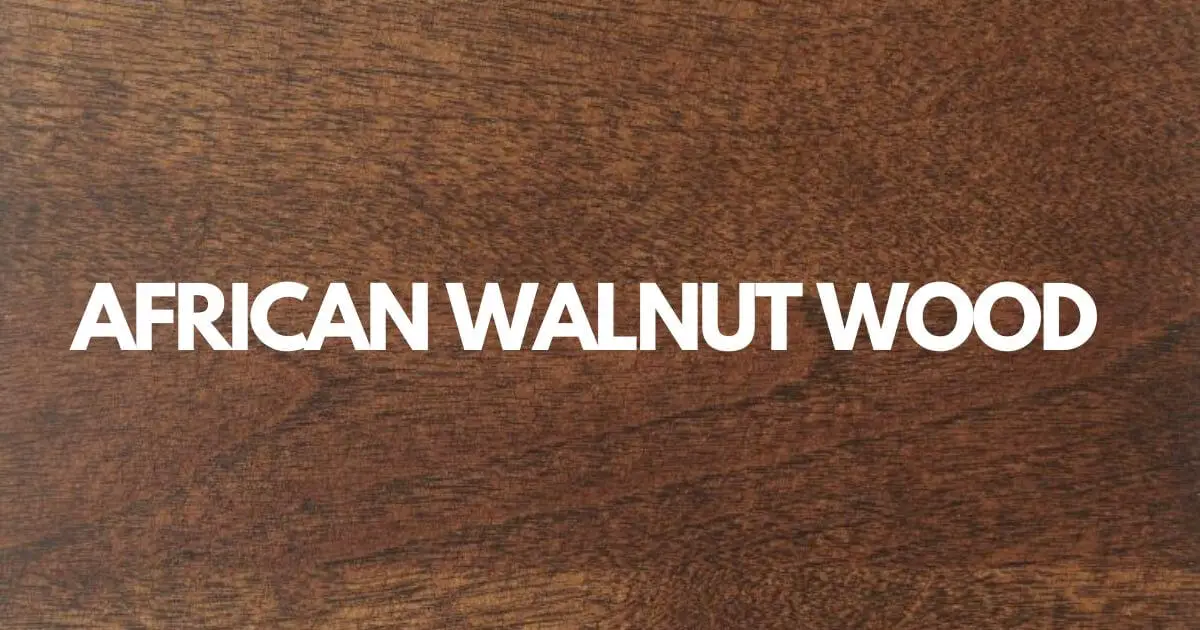African walnut wood is highly valued for its strength, durability, and attractive appearance, native to West tropical Africa. It is golden yellow to reddish brown, sometimes with darker streaks and veins. It gives excellent results after finishing.
African walnut wood is commonly used for high-quality furniture, cabinetry, flooring, paneling, veneer, and decorative items. It is an ideal choice for interior applications.
African walnut wood comes from the medium to large African walnut tree, which can grow 100-150 ft (30-46 m) tall. There are many walnut species, and the African walnut is one of them.
Each species is similar to the other. If African Walnut Wood doesn’t quite meet your needs, you can also choose Black Walnut or English Walnut wood.
| Scientific Name: | Lovoa trichilioides |
| Average Dried Weight | 34 lbs/ft3 (540 kg/m3) |
| Janka Hardness | 940 lbf (4,180 N) |
| Crushing Strength | 6,700 lbf/in2 (46.2 MPa) |
| Shrinkage: Radial | 3.7%, Tangential: 5.9%, Volumetric: 10.8%, T/R Ratio: 1.6 |
African Walnut Wood Advantages
Appearance
All varieties of walnut are known for their dark color and excellent finishing. African walnut wood can range from golden yellow to reddish brown with darker streaks or highlights. Sapwood is a medium yellow to light gray. Walnut wood darkens over time when it is exposed to sunlight or air.
Durability
African walnut wood is known for its excellent durability and resistance to decay. It can withstand wear and tear, making it suitable for various applications.
Easy to Work
The wood has a straight grain, and the density is medium, making it relatively easy to work with hand and machine tools. It also takes stains and finishes well.
Rot resistant and Stability
African walnut wood is naturally rot-resistant, so it can withstand moisture or extreme weather for a time under maintenance. It is not as rot-resistant as teak or mahogany. Wood is rot-resistant due to the natural oils and resins present.
African walnut wood species have good dimensional stability, so it is less likely to warp or shrink with changes in humidity and temperature.
African Walnut Wood Disadvantages
Susceptible to Termites
African walnut wood is naturally rot-resistant, but it is susceptible to termites. It is prone to attack by termites when it comes in contact with the ground. Make sure the wood is chemically treated if you plan to use it outdoors.
Expensive
Walnut wood is considered an expensive hardwood. The Lumber prices can vary based on many factors, such as grade, quality, availability of lumber, regional supply, and demand.
Many other wood species available in the market are cheaper than walnut wood and look similar to walnut wood, such as alder, red gum, and yellow popular.
Availability and Sustainability
African walnut wood is considered vulnerable due to overharvesting and habitat loss. It is reported by the IUCN as being a species of least concern.
Softness
It is relatively soft compared to some other hardwood species. If African walnut flooring is not properly cared for or protected, it can be prone to dents and scratches.

